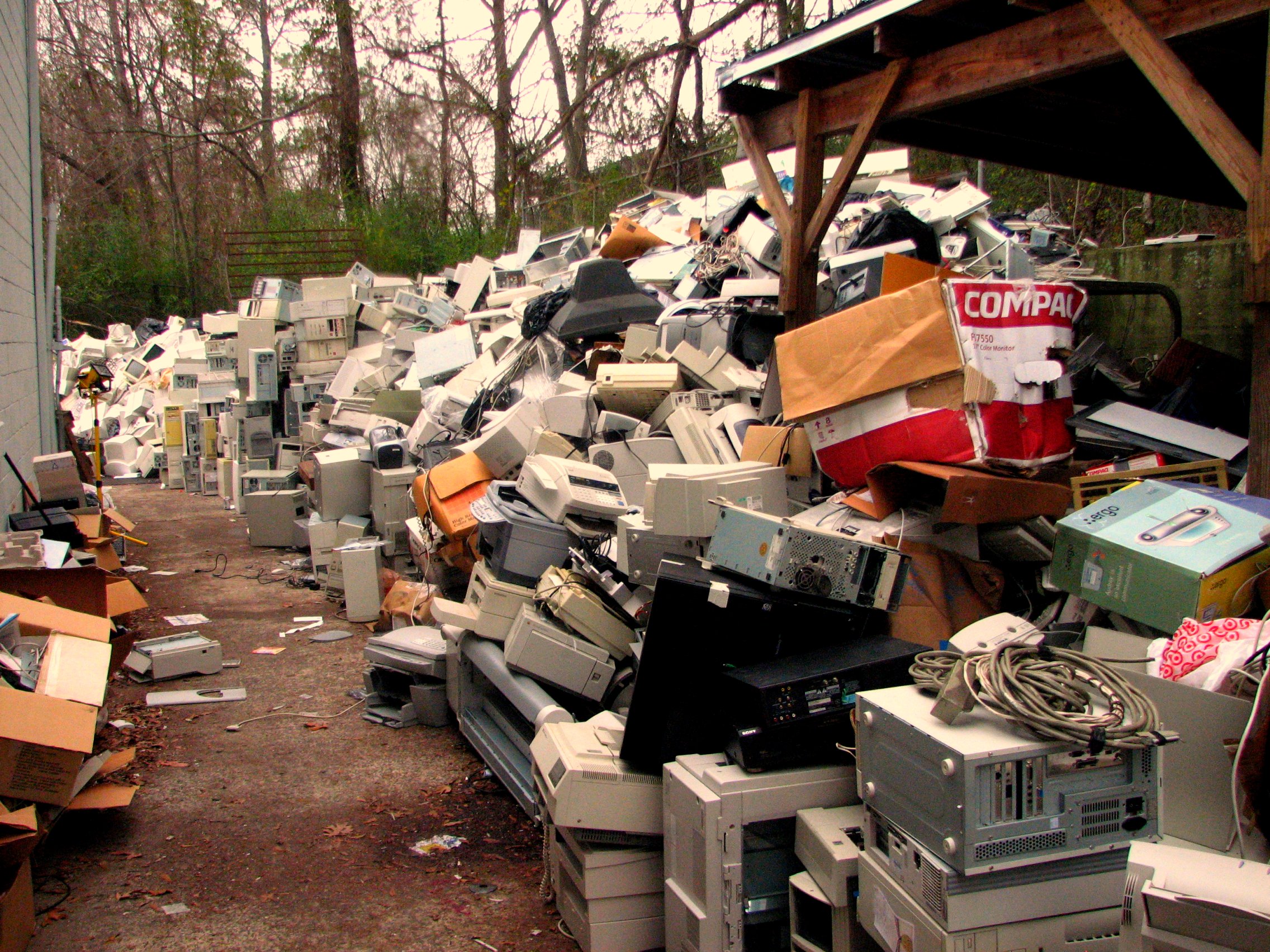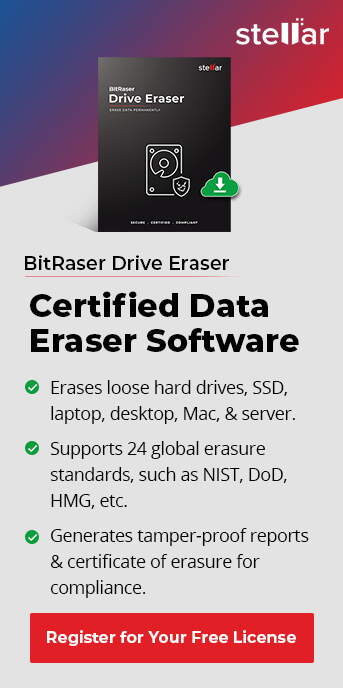Climate change is a burning issue. Quite literally.
The 3000-year-old sequoia trees in Yellowstone barely managed to survive their battle with a massive wildfire. Europe and Japan reeled under 40°C summer sun. These incidents are accelerating and no one can say it is alarmist to be concerned.
Every business has a social responsibility. All the revenue-generating activity that a business undertakes is affected by what happens in broader society.
That is why it is essential for business owners to understand their role in reducing pollution and greenhouse gas emissions.
One of the most pressing issues is the practice of hard drive shredding and its attendant problems.
How Are Hard Drives Disposed Of?
Hard drive shredding happens in the old-fashioned way—through brute force.
There is no fancy disassembly. Since hard drives have neodymium-iron-boron magnets, they are recycled abroad. The magnets are extracted and reused. Of course, it is not universal but gaining momentum.
Here in India, there is no such concern. A hard drive has a plastic exterior shell and has aluminium internals. The magnets are quite small and it makes no sense to extract them by hand.
The entire computer is first disassembled. Any metal is ripped and torn out by pliers and tossed into a heap. A shredding machine then reduces them to tiny bits. The shredded metal is reused after smelting.
It is estimated that from 244 kilos of hard drives, about 212 kilos of aluminum and steel can be extracted. The process is extremely profitable for the recyclers but bad for the environment.
What was once a Seagate hard drive on your laptop could very well end up being in the next saucepan you buy.
This is not the way it should be.
Environmental Impact of Hard Drive Shredding
A study by the US National Renewable Energy Laboratory (NREL) showed that if hard drives were reused instead of getting tossed to a landfill by 2050, we can recover 107,000 tons of rare earth elements—enough to power billions of new devices.
Truth is far different.
Hard drive shredding affects the environment in undesirable ways. It is a brutal, low-technology, mechanical process that is deeply flawed. We don’t have an equivalent number for India, but it’s easy to guess the relevance, given the gigantic volume of e-waste generated in the country.
Here’s how low-level hard drive shredding hurts the environment:
- Release of toxic chemicals and particulate in air, water, and soil
E-waste is toxic and hazardous. The use of low-tech acid baths to recover metals from hard drives can lead to a poisonous atmosphere.
A hard drive has not only plastic, aluminium, and steel but also trace quantities of lead, mercury, beryllium, thallium, and arsenic. Shredding a hard drive releases polychlorinated biphenyls and polychlorinated dibenzodioxins.
These are released when the PCB is melted to extract copper. Once a certain amount of these chemicals leach into the soil, contamination of groundwater is inevitable, leading to deadly ailments.

-
Loss of rare earth materials (and its consequences)
Low-level shredding cannot recover rare earth materials. Most of the effort is towards recovering ferrous metals, steel, and aluminium. Though hard drive motors have trace amounts of rare metals, they are molten with other metals and irrecoverable. Highly engineered parts are also lost, such as the motor housing and spindle.
The Democratic Republic of the Congo is the source of 60% of the world’s cobalt supplies. But reusing all the cobalt contained in old electronics in the EU alone could make mining unnecessary. Only 30% of cobalt is recovered though there is the technology for extracting 90%.
-
Loss of precision engineered parts
A hard drive is a marvel of engineering. The actuator arm floats a mere 6 μm above the platter. That is smaller than most microbes. It moves 50 times a second to seek, read and write data. Crushing one in a shredder is a waste. Since hard disk technology has reached maturity almost a decade ago (7200 rpm, SATA drives being industry standard) there is no reason why they can’t be used either longer or for refurbishing broken drives. Instead, shredding means that the industry has to waste resources in re-manufacturing these highly engineered parts.
Erase and Reuse - A Better Alternative
There is an easier alternative to hard drive shredding. Wipe the drive and reuse it. If you own an IT company that disposes of all the 300 hard disks every 2 years, why not simply wipe them?
After all, the average life of a hard drive is far more than 2 years. Sell it to an ITAD. Instead of shredding it, they can wipe it, erase the data and sell them as refurbished drives.
Know the facts before you decide:
- A hard drive is manufactured to run 25000 hours at least. When you are disposing of them, they might have half of their life left.
- Every time you reuse a drive, you are saving precious metals, electrical power, water, and other resources.
- The ultimate fate of a hard drive is recycling. But allow it to fail first and then recycle.
What is the Stumbling Block?
There is a lack of trust in data-wiping technology. That is why most prefer to resort to services of a hard drive shredding and e-waste company rather than be processed for reuse.
BitRaser ® - The Perfect Solution
Made by Stellar, BitRaser is an innovative data erasure software that you can use to wipe any type of hard disk and storage media. You can install and run it from a USB and wipe multiple drives at the same time.
- If you run an IT business and regularly need to dispose of storage media, BitRaser is the ideal tool for you. No need to fear that anyone would get their hands on your personal data. BitRaser allows you to employ 24 global standards for disk wiping.
- If you run an ITAD business and dispose of assets for your clients, BitRaser is going to provide you with a complete paper trail. The software generates 100% tamper-proof eraser reports in PDF, CSV, and XML.
Why BitRaser?
- Robust portable software that lets you wipe data in minutes
- Boots from USB to BIOS and UEFI
- Parallel erasure of 32 drives
- Works with HDD, SSD, USB, and flash memory
- Provides PDF reports, eliminating doubt among clients
- Provides hard disk health report for easy resale
To make your business eco-friendly, opt for disk erasure and reuse rather than shredding and recycling. It is important to do the right
thing when our planet is in peril. Being green is not only sensible but would bring you more business as our society has begun to frown on waste and encourages sustainable business.




